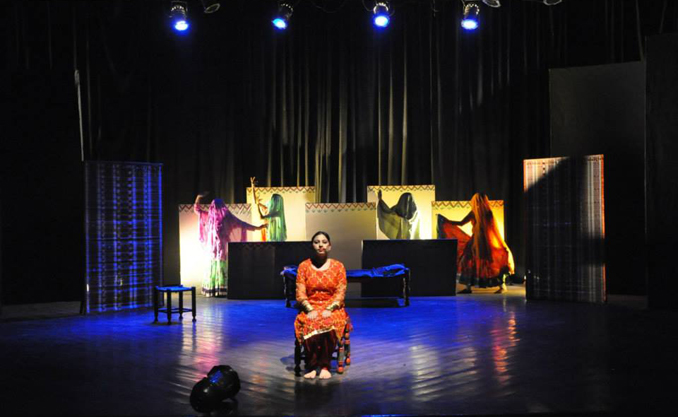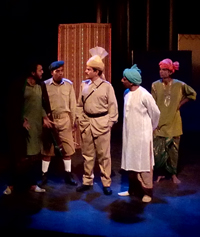Written by: Salma Chaudhry - Posted on: October 12, 2014 |  Comments
Comments
Google Translation: اُردو | 中文
Theatre has massive ability to enlighten communal attitudes, but for some years this potential to get to mass viewers has been restrained due to commercial theatre mostly being associated with vulgarity, especially in Punjab. Theatre in other languages, particularly English, has largely become an elitist or upper middle-class pursuit. Art and Theatre cannot exist in a vacuum. They must always reflect issues of the society they thrive in. Dramatics evidently has the potential to make social structures, power relations and personal behavior discernible, in addition to offering an apparatus to bring about change. It is one of the few methods that offer an inclusive approach to work on various levels - individual, group and social – to raise political awareness in an audience of its circumstances and surroundings.
As financial support for the arts, especially theatre and drama, is minimal in our country, theatre has come down to the two categories mentioned above. Parallel or social theatre is a great means to spread awareness and contribute to the empowerment of people. The biggest problem is that the majority who is mostly affected by the societal problems addressed in these plays do not get to go to theatre halls to watch them.
The Lahore Arts Council recently took an initiative to dedicate Hall 2 at Alhamra to parallel theatre, dedicating its use specifically for serious and objective theatre. This initiative is considered a welcome move by theatre groups as young artists will get a chance to showcase their talents. Azad Theatre organized a three day festival at Alhamra in the last week of September as part of this project.
Their popular play ‘Akhian’ was performed on all three days, attracting large crowds. It was a tribute to Rafee Pir for his contribution to Pakistani theatre and radio. The story written by Rafee Pir himself back in the 50’s was originally performed on radio. This interesting performance sticks its nose into a new form of script and production.
 |
The play revolves around the life of a blind girl who is married off against her will. Sarfaraz Ansari, playing the role of Mian Sahab, is the girl’s guardian who lives in the city and is not told about her marriage. The girl is in love with her cousin and upon realizing that she has been married to someone else, flees her in-laws’ village. In an ironic skit of ravenousness, class distinctions and maneuverings for personal gain, Akhian digs at the truth. Live folk and classical music has been incorporated beautifully in the play. The play ends on a rather sad note when the two lead characters and lovers commit suicide.
 |
Azaad’s plays are considered a pure form of non-commercial, social and objective theatre. Azaad has managed to establish an identity both nationally as well as internationally in a short period of time. The play Akhian also adopts a critical position towards societal problems, making a marked distinction from commercial theatre.
Theatre has the wonderful ability to highlight significant issues and bring them to the vanguard of people’s thoughts, thus reaching out to a vast number of people including communities and individuals affected by them. The existing economic atmosphere is a valid peril to theatres – the responsibility lies not only on the government but on local authorities and audiences too. They must do all they can to support them. Theatre groups like Azaad are already doing a great job and such initiatives will encourage new theatre groups to come forward and help in the revival of Pakistan’s theatre industry.